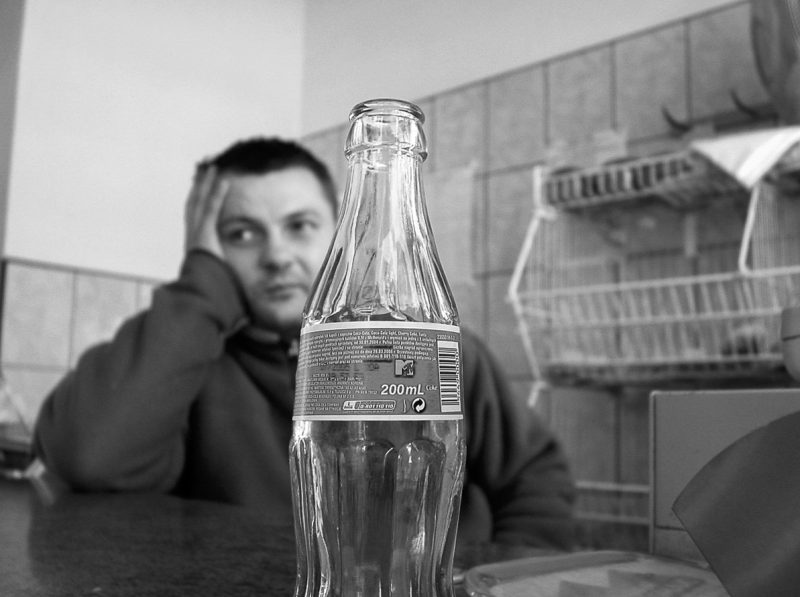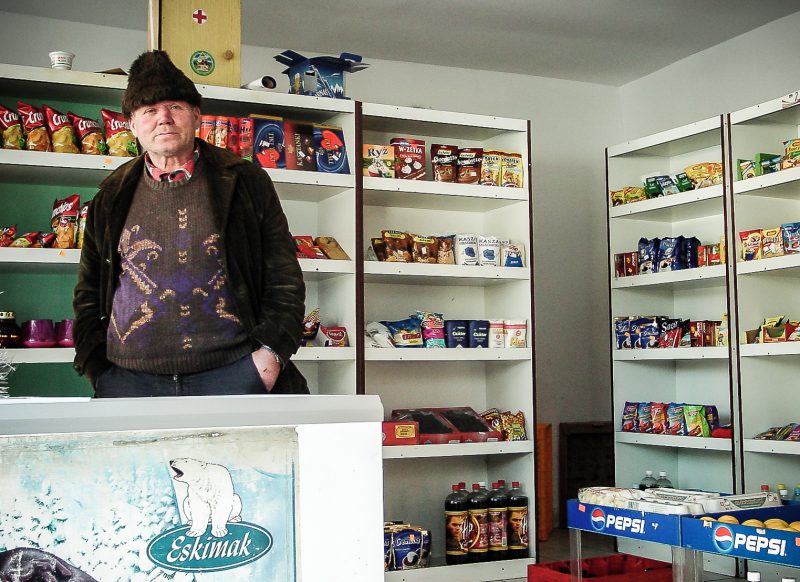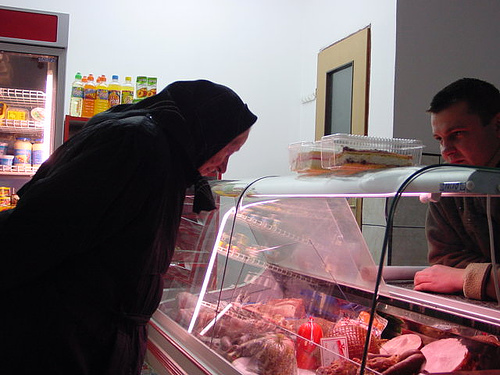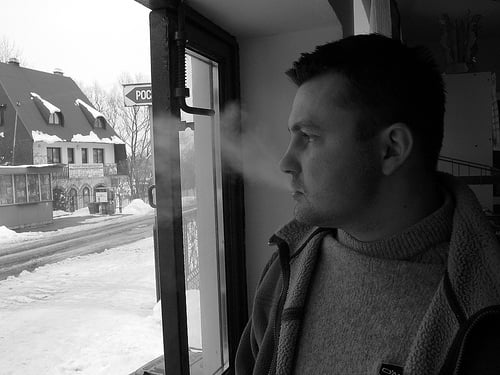It’s four o’clock. My lessons are done, and because I’m repeating today’s lessons tomorrow with different sections of the junior and senior classes, I have no planning. I also have no sandwich meat — a staple in Polska — so I wrap up in my layers and head down the street to my friend’s shop.

It’s a frigid day, and no one is out unless he has to be out. Stasiek sits behind the counter, head propped with one hand, bored and waiting for customers.
I buy a cola, and we chat while he slices some ham for me. We chat about mindless things, but we chat in Polish. Stasiek is one of my few friends with whom I have an entirely Polish relationship: only rarely does he try English with me, and usually only as a joke.

Soon, another customer staggers in and immediately begins telling slurred stories about the time he went to work in Iraq, back in the sixties. He tries to speak some Arabic for us, but to me it’s no more unintelligible than his slushy, thick Orawian dialect. I engage the defense mechanism I’ve honed to perfection in this small Polish village: I smile, mumble assenting phrases, and avoid further unnecessary eye contact.
Stasiek senses my unease and offers help: “Uncle, do you need anything else? You’d probably better start heading home.”
Soon, Michal, a former student and now mutual friend, comes in, grabs a bag of bacon-flavored chips, tosses a coin on the counter, and joins our conversation. As he talks, he looks about for some thing or other, muttering a greeting to the still-rambling, inebriated customer, asking occasional questions about the merchandise.
Michal and Zbyszek, former students, are there, and soon we’re playing a Polish card game called Tysiąc (Thousand). I’ve been playing it for several weeks now, but I still don’t fully understand what I’m doing.


0 Comments